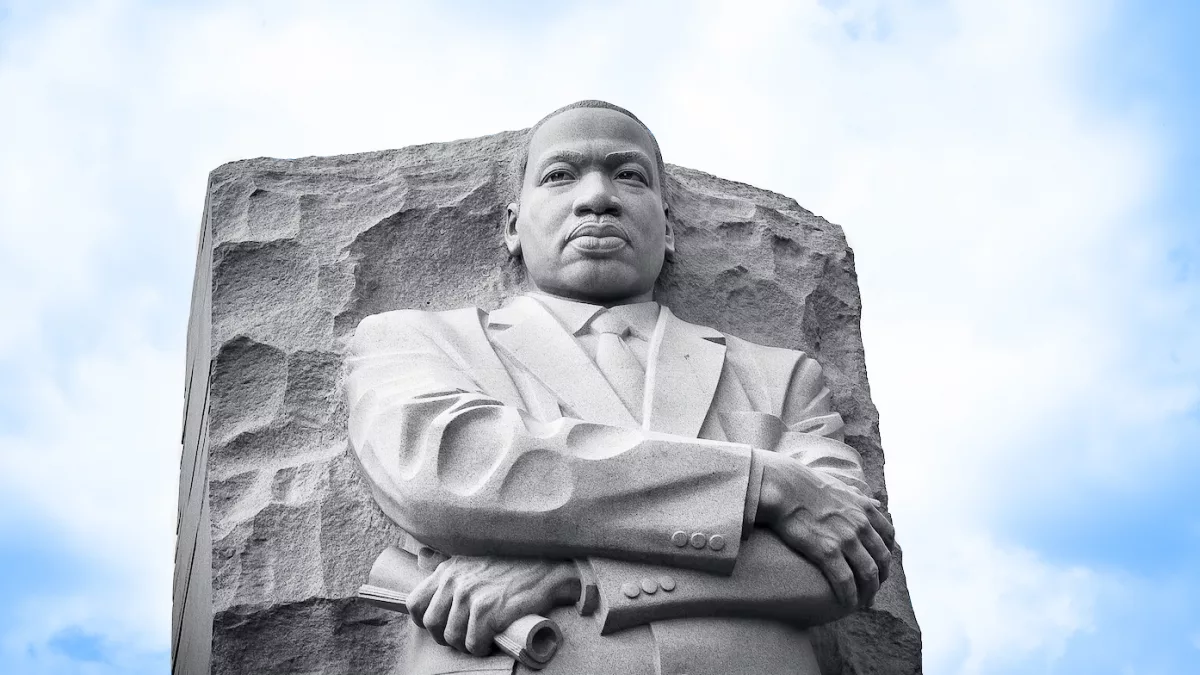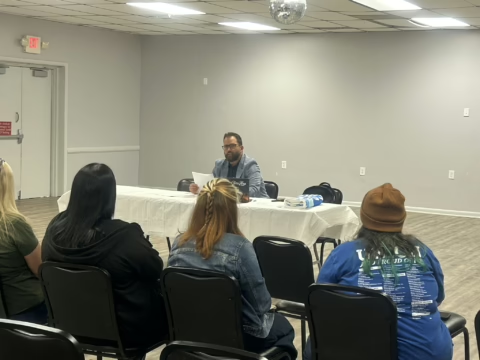- 3120 Fire Road, Suite 201 Egg Harbor Township, NJ 08234
- 888-564-6152
By Matte Kane, Union Representative
We often consider the third Monday in January a national holiday to reflect upon civic and racial advances, as well as the many goals we have yet to accomplish in these areas.
As we become wrapped up in the common observations of the holiday, we consistently overlook the unaddressed issue that Dr. Martin Luther King Jr. was equally passionate about: Economic Equality. Rev. King was as committed to economic justice as he was to end segregation, although his speeches and rallies on eradicating poverty are still not as well known as his cries to oppose racial discrimination.
His words and actions on elevating the poorest Americans speak to the heart of the Labor Movement and addressed systemic shortcomings that the nation still struggles with more than 50 years later. When we speak of our institutional freedoms, we neglect the fight for Economic Liberty. Liberty and prosperity are set forth constitutionally to coexist in our society, not to be a multiple-choice option in America. The Dream is hardly realized, the battle fades in and out over generations, and yet the nation still struggles with unsustainable unemployment, housing disparity, and food insecurity.
Correcting these social maladies is not some socialistic agenda, but rather a manifestation of the vision of our Constitutional Democracy. Life, Liberty, and the Pursuit of Happiness are not exclusive to a particular class or segment of our country but are considered unalienable rights to all who breathe within her borders.
These are not options; they are the lifeblood that courses through our nation, and as such, need to be protected and still attained.
In his own words:
“But we must see that the struggle today is much more difficult. It’s more difficult today because we are struggling now for genuine equality. And it’s much easier to integrate a lunch counter than it is to guarantee a livable income and a good solid job. It’s much easier to guarantee the right to vote than it is to guarantee the right to live in sanitary, decent housing conditions. It is much easier to integrate a public park than it is to make genuine, quality, integrated education a reality. And so today we are struggling for something which says we demand genuine equality.”
– The Other America April 14, 1967.
As we honor Dr. King’s legacy this weekend with service projects and community activism, remember it’s not as much a day to atone for racial sins of the past as it is a time to reflect upon all the ones we leave behind as we stride forward as a global consumer powerhouse. Volunteer, serve, and lift all those in our reach. It’s our responsibility in the social contract we enjoy as a nation.





